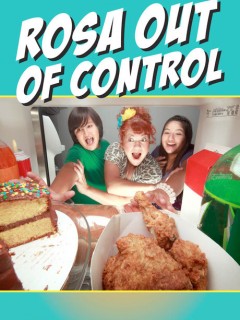 With seven fotonovelas under his belt and another in production, Associate Professor Mel Baron remains committed to increasing health literacy among the populations that need it most. This is especially important as the Affordable Care Act moves the nation toward patient-centered care, making it imperative for patients to access health information in an understandable, culturally appropriate format.
With seven fotonovelas under his belt and another in production, Associate Professor Mel Baron remains committed to increasing health literacy among the populations that need it most. This is especially important as the Affordable Care Act moves the nation toward patient-centered care, making it imperative for patients to access health information in an understandable, culturally appropriate format.
Baron’s fotonovelas – stories told through photos and text in a soap-opera style, targeted specifically toward Latino communities – help educate people about important health issues. His unique literacy tools have recently received funding from two new grants, and are part of an exciting project that will bring them to the Netherlands as well.
The first grant is for $100,000, awarded to Baron by the UniHealth Foundation. The grant will support the development and dissemination of health education materials to underserved, low-literacy, Latino populations in Los Angeles.
“The fotonovelas are a much-appreciated addition to community health promoters’ toolboxes,” said Mary Odell, UniHealth Foundation president. “UniHealth Foundation is delighted to continue its support for this successful program.”
The funds will be used to review, revise, print and distribute Baron’s existing fotonovelas on pediatric asthma, childhood obesity, and diabetes. The fotonovelas will be distributed through safety net clinics, health fairs, the USC family of schools and local pharmacies.
“This grant will enable us to increase awareness, knowledge, and change attitudes – and ultimately change behaviors by encouraging preventive health actions and compliance to therapies, on a scale larger than we have been able to achieve in the past,” said Baron.
The second grant is a 2-year, $50,000 grant from the Confidence Foundation that will go toward the development of a fotonovela focusing on breast cancer.
“Many women don’t understand the importance of screening and prevention,” explained Baron. “The development of culturally and linguistically appropriate material for the Latino community will help reduce stigmas that people associate with health care, and educate them about the most prevalent health conditions, in this case dealing with breast cancer.”
Baron previously raised $6,109 toward the development of this fotonovela through the School’s first successful Microryza crowdfunding project. Other funding for his latest fotonovela came from a UNO grant, L.A. Health Plan and Dr. Jim H. Roache, a past-president of the School’s QSAD Centurion support group.
“We have a formula for success within the Latino community and will use it again to reach women and their families with important messaging on breast cancer,” said Baron. “As we have done in the past, our USC School of Pharmacy team will work with community clinics, pharmacies and other health leaders to ensure that our message is effective and engaging.”
In addition to these grants, Baron is working on a project that will take his fotonovelas abroad to the Netherlands.
“Our fotonovelas will be translated to Dutch, and then we will re-format them, redo the layout, print them, and then return them to the Netherlands for distribution,” added Baron. “We will also conduct research to evaluate the effectiveness of the fotonovelas on the test audience.”
The expansion abroad marks an exciting step in the increasing impact of Baron’s health education tools, which work to fill knowledge gaps, and convey information in a way that encourages behavioral changes.
“The work of Dr. Baron is a great example of the commitment of USC Mann and our many community partners to increase health literacy in a way that is effective and meaningful, not only in our own communities, but now in other countries as well,” said Dean R. Pete Vanderveen.

